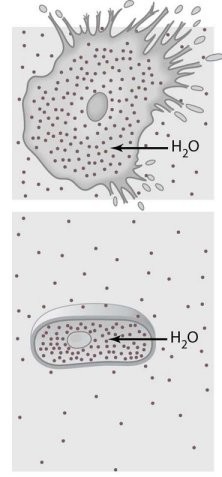 The cells illustrated in Figure 3.1 are in a(n) ________ environment.
The cells illustrated in Figure 3.1 are in a(n) ________ environment.
A. hypotonic
B. hypertonic
C. isotonic
D. fluid mosaic
E. passive
Answer: A
Biology & Microbiology
You might also like to view...
These two homologous chromosomes have ___ alleles in common and differ by ___ alleles
1.1, 3
2.2, 2
3.3, 1
4.4, 0
condition which specifically involves the formation of abnormal pouches in the wall of the GI tract, where portions of the mucosal layer have pushed through other layers
What will be an ideal response?
Biology & Microbiology
Human infection with Erysipelothrix rhusiopathiae takes a milder form and is known as Erysipelas roughly translated to 'red skin'.
a. true b. false
Biology & Microbiology
Which of the following organisms is responsible for "sick building syndrome?"
A. Amanita phalloides B. Stachybotrys chartarum C. Claviceps purpurea D. Aspergillus nidulans
Biology & Microbiology